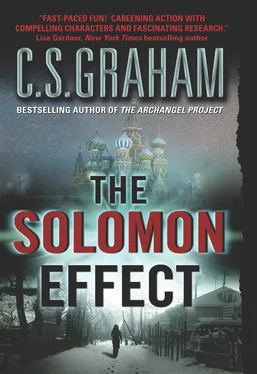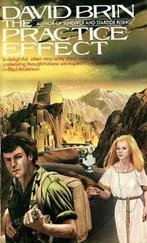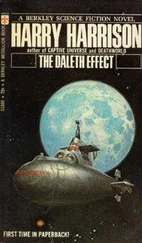Jax glanced at Tobie, but said nothing.
Marie Oldenburg cleared her throat. “You know that the numbers U-112 to U-115 vere to be assigned to four type XI-B vessels whose keels vere originally laid down before the war, but that there are no Kriegsmarine records of the submarines ever being finished or commissioned?”
“We heard there are no official records,” said Jax.
She nodded. “Germany had over a thousand U-boats in World War II. Ve have records here on nearly all of them. Some of our collections are so extensive that it is possible to trace the entire history of a submarine, from the laying of its keel to the day of its loss. Up until six months ago, I vould have told you no XI-B class boats ever existed.”
“So what happened six months ago?”
“A man named Karl Wertheim came to see us. I spoke to him myself. It seems his grandfather had vorked at the docks at Bremerhaven. After his death, the young Wertheim found a number of papers and other memorabilia in a trunk in his grandfather’s attic that he thought ve might be interested in purchasing. Amongst those papers vas the manifest of a U-114, dated March 1945.” She hesitated. “Or so he claimed.”
“The archives didn’t buy the papers?”
She spread her hands wide. “This is a nonprofit venture. Everything you see here and in the museum has been donated. I tried to convince the young man to contribute his grandfather’s papers to the archives, but he refused. He vouldn’t even let me copy them-he said it vould reduce their sale value.”
“But you saw them?”
“Some of them. Not, unfortunately, the manifest of U-114. The young man vas very secretive about it. He claimed that amongst its other cargo, U-114 carried a secret veapon-what you Americans like to call a veapon of mass destruction.”
Tobie felt a tingle of fear run up her spine. “You mean an atom bomb? Is that possible?”
Marie Oldenburg laced her fingers together on the desktop before her. “There is much debate concerning how far the German atomic program had actually progressed at the time of the surrender.” She paused. “Are you familiar with the vork of Wolfgang Palmer?”
Tobie glanced at Jax, but he shook his head. “I’m sorry, no.”
“Herr Palmer is a journalist. He has spent years researching the German atomic program, and he tells me it is indeed possible that the Nazi government tried to send an atomic bomb to Japan-or at least the material to make such a bomb. But at the moment, ve have only young Wertheim’s vord that the XI-B even existed. Whereas for its cargo…” She let her voice trail away.
Jax said, “Where can we find this Karl Wertheim?”
Marie Oldenburg sighed. “Unfortunately, he is dead. Two of our members-both former submarine officers themselves-vent to see the young man, hoping to persuade him to donate the items in his grandfather’s name. But he told them he’d already listed them on eBay and had located an interested buyer. Two days later, his house caught fire and Karl Wertheim was found dead.”
“He died in the fire?”
“No. Someone had slit his throat.”
Kaliningrad Oblast: Wednesday 28 October
8:00 P.M. local time
The closer Stefan drew to Yasnaya Polyana, the more skittish he became. He had slept most of the afternoon, snuggled up next to the black-and-tan pup for warmth, emerging only at dusk to walk along the edge of the fallow, frost-covered fields.
They kept well back from the pavement and the occasional darting beams of passing headlights, but he’d given up trying to go overland. Once, he’d blundered into a patch of stinging nettles; another time, the pup strayed into a bog and got stuck. Plus they kept getting lost, going off in the wrong direction or unwittingly circling around on themselves. He’d finally decided to stick close to the main roads and travel only at night. He and the pup were both footsore and hungry and desperate to get home.
The problem was, it had occurred to him that going home might not be safe.
With a whine, the dog flopped down on the grassy verge, his tongue hanging out as he panted heavily. Stefan dropped beside him. “What’s the matter, boy? Tired?”
He lay back, his eyes blinking as he stared up at the dark sky. The night was cold and overcast, allowing only faint glimmers of starlight to peek through. Stefan felt a lump rise in his throat, and resolutely squeezed his eyes shut against an upwelling of tears.
Sleep came by stealth. He awoke with a start, shivering, unsure at first what had roused him. He heard a snort and a jingle of harness, and raised his head to find a decrepit farm wagon pulled by a pair of graying mules drawn up beside the verge.
A hunched figure wearing a woolen cap perched on a hard wooden seat high above the wagon’s great iron-banded wheels. “You all right, boy?”
Stefan scrambled to his feet, ready to run. “How’d you know I was here?”
The man laughed. “I saw you. What’d you think? I may be old, but there’s never been anything wrong with my eyes. I bet I can see better at night than you.”
Stefan wiped the back of his fist across his nose. “You must have eyes like an owl.”
The man laughed again. “How’d you like a ride?”
Stefan dropped his hand to the pup’s head. “And my dog?”
“The dog’s welcome, too.”
He lifted the pup up onto the floor of the wagon, then swung himself up using an old iron step. The farmer made a clucking sound and danced the reins on the backs of the mules. Stefan breathed in the pungent, earthy smell of potatoes, and sneezed.
The old man laughed. “Where you headed?”
“Chkalovo,” said Stefan, naming a hamlet just beyond Yasnaya Polyana.
“You can go back to sleep, if you want. I’ll wake you when we get there.”
Stefan shook his head.
“What’s your dog’s name?”
“He doesn’t have one.”
“Everyone should have a name. Man or beast.”
“So what’re your mules’ names?”
“Karl and Marx.”
Stefan laughed so hard he had to grab the side of the wagon seat to keep from falling off.
The old man shrugged. “They’re old mules.”
They talked for a time about mules and farming and the price of grain. They were easing down a dark wooded slope when they came around a bend and saw the glow of flares. Against the dancing flames of a fire stood two silhouettes in uniform.
The dog sat up and gave a low growl. Stefan put a warning hand on its head. “Ssshh, boy. What’s that?”
“Looks like the militia’ve set up a roadblock. I went through another checkpoint just like this one, maybe ten miles back. They were looking for a young man. That wouldn’t be you, would it?”
Stefan curled his hand over the edge of the seat, ready to jump. The old man said softly, “You jump now, they’ll see you.”
Stefan drew in a quick breath, trying to ease the sudden pain in his side, but it didn’t help. “What do I do?”
The old man pursed his lips. “Get in back. You’ll find some empty gunnysacks beneath the seat you can pull up over you.”
“And if they search the load?”
The old man was silent for a moment. “Then I’ll take care of your dog.”
Crouched in a narrow space between the seat and the mounds of potatoes, Stefan pulled the scratchy pile of dusty sacks over his head and shoulders, clutched his lucky piece of amber in one tight fist, and tried not to breathe.
As the wagon drew up at the checkpoint, he heard the old farmer shout, “Another roadblock? Don’t you young men have wives whose beds need warming?”
One of the militiamen laughed. “What you doing out so late, old man?”
“Axle broke. This wagon’s getting too old. Like me.” Stefan heard the clink of glass against wood, then smelled the strong familiar pinch of alcohol. The farmer said, “Like a drink to chase away the chill?”
Читать дальше











